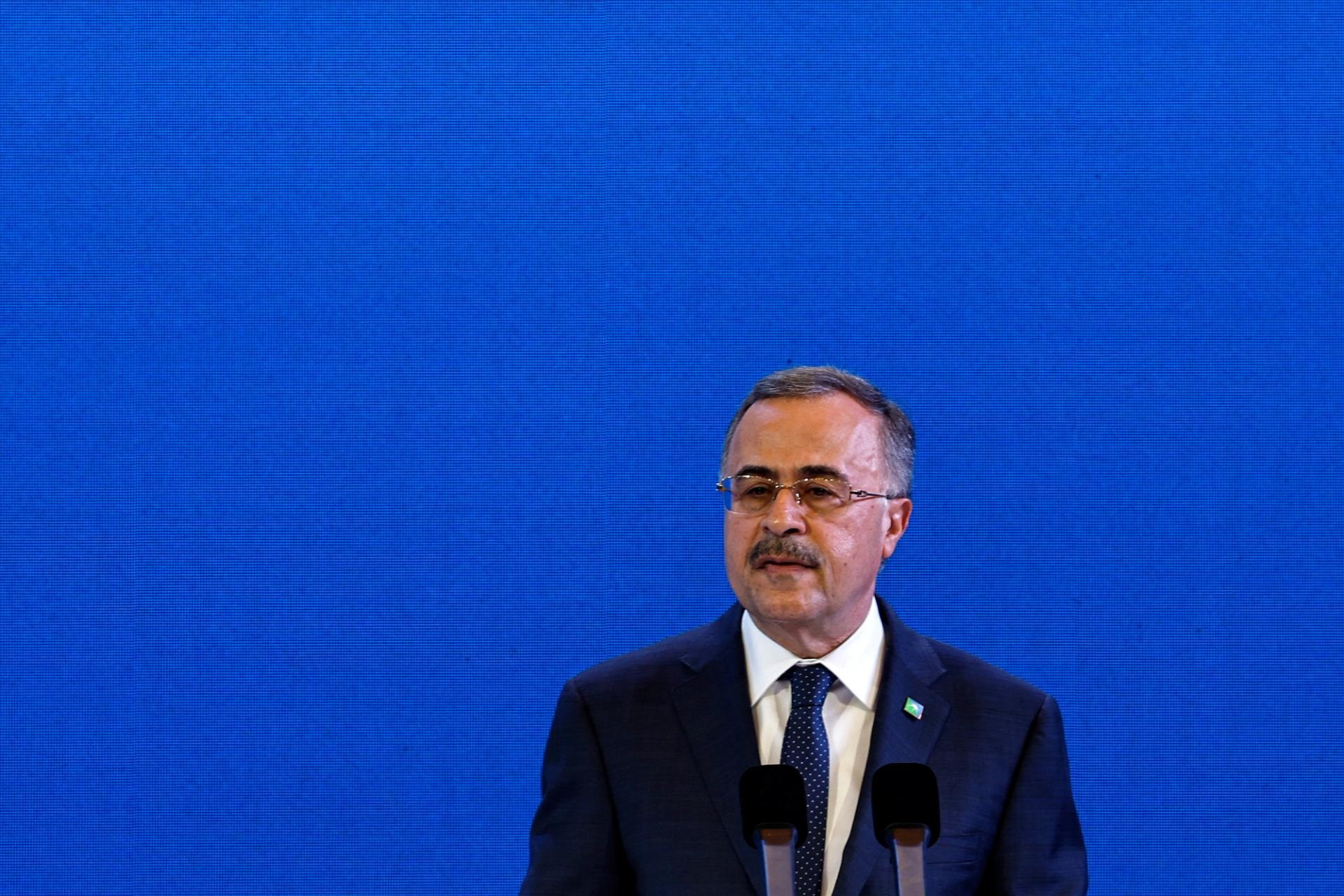The News
The head of Saudi Arabia’s state oil company praised China’s exports of green technology, echoing Beijing’s talking points in what appeared to be a deliberate rebuke of Western policymakers.
“China really helped by reducing the cost of solar energy,” Aramco CEO Amin Nasser told the World Energy Congress in Rotterdam on Monday. “We can see the same now in electric vehicles…a lot of policymakers do not understand what is required and how [the energy transition] is going to happen.”
His comments contrast sharply with concerns from Western countries over China’s green technology exports, which have flooded global markets in recent months as Beijing attempts to shift goods at cheap prices to alleviate overcapacity in its giant factory sector.
US Treasury Secretary Janet Yellen and German Chancellor Olaf Scholz both traveled to China in recent weeks warning about overcapacity — the flood of cheap green technology exported to international markets — which has seen US and European firms struggle to keep up with their Chinese competitors.
Unlike the West, Saudi Arabia and the wider Middle East have embraced Chinese investment in sustainable energy infrastructure development as the oil-rich nations seek to diversify their economies towards green energy, often leaving little room for the West.
SIGNALS
Riyadh sees Beijing as crucial to its transition away from oil
For years, Saudi Arabia helped fund China’s fossil fuel industry, but now “Beijing is repaying in kind,” according to Bloomberg, with Chinese green tech firms eyeing the Middle East as a key business hub. While Europe and the United States work to distance themselves from Chinese green tech — the EU, for example, is mulling tariffs on electric vehicle parts — the opposite is happening in Saudi Arabia, which sees China as crucial for its transition away from a oil-first economy. Saudi’s Public Investment Fund, for instance, has tapped Chinese solar panel giant Longi as its main supplier for a new mega-infrastructure project, according to energy news site Iluminem.
Western red tape makes China a more palatable energy partner
“Western governments generally have been reluctant to compete head-to-head with Chinese enterprises in the Gulf as the global energy transition unfolds,” according to the Center for Strategic and International Studies. This is in part due to the West’s “preoccupation” with dividing the roles of asset owners, policymakers, and regulators, which in the Gulf are often conflated.
Before construction work on energy projects can start, Western governments typically require environmental and economic assessments to be conducted by multiple stakeholders — meant to reduce the ecological impacts of these projects and make sure investors benefit fairly.
This red tape slows things down considerably, while China’s reputation of quickly building projects and getting them off the ground quickly is “often very much more in tune with the instincts of Gulf governments,” CSIS argued.
Overcapacity could ultimately hurt China’s economic recovery
China’s economy grew 5.3% in the first quarter — surpassing economists’ expectations — driven in part by its sales of cheap green tech. But this “could be damaging to China,” argued Nathaniel Taplin, a Chinese economy columnist for The Wall Street Journal. While Beijing continues to ramp up production and exports, the value of these goods has plateaued: if values don’t increase, investment into green tech will slow, Taplin explained. Government and state-owned banks will have to absorb the cost of loans, similar to the painful repercussions inflicted by Chinese real estate developer defaults. Moreover, domestic consumption of goods remains low because “Beijing still isn’t doing enough to support Chinese households”, keeping the economic recovery lopsided, according to WSJ reporter Jason Douglas.

